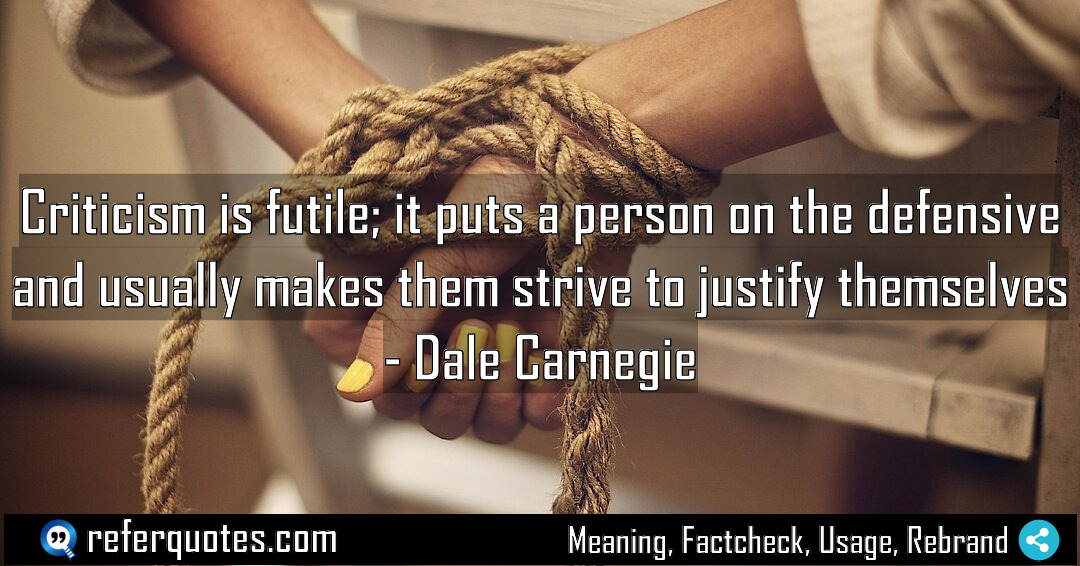You know, that idea that “Criticism is futile; it puts a person on the defensive” is one of those game-changers. It completely reframes how you approach giving feedback, shifting the focus from blame to collaboration. Once you see it in action, you can’t unsee it.
Share Image Quote:Table of Contents
Meaning
At its core, this quote means that criticizing someone is a counterproductive strategy. It doesn’t fix the problem; it just makes the other person dig in their heels.
Explanation
Let me break it down. When you criticize someone, you’re essentially attacking their ego. It’s a primal trigger. Their brain doesn’t go into problem-solving mode; it goes into self-preservation mode. They stop listening to your actual point and start building a mental case for why they’re right. It’s not about being difficult—it’s a hardwired human response. So, you might be factually correct, but you’ve just lost any chance of actually influencing them. The goal isn’t to be right; the goal is to get the right outcome.
Quote Summary
| Context | Attributes |
|---|---|
| Original Language | English (3668) |
| Category | Skill (416) |
| Topics | communication (196), criticism (17) |
| Literary Style | clear (348), direct (414) |
| Emotion / Mood | realistic (354), reflective (382) |
| Overall Quote Score | 85 (305) |
Origin & Factcheck
This is straight from the modern classic, The Leader In You, published in the US in 1993. While it carries the spirit of Dale Carnegie’s legendary How to Win Friends and Influence People, this specific phrasing is from the later work by Levine and Crom. People often misattribute it directly to the original 1936 book, but the core principle is pure Carnegie.
Attribution Summary
| Context | Attributes |
|---|---|
| Author | Dale Carnegie (408) |
| Source Type | Book (4032) |
| Source/Book Name | The Leader In You (86) |
| Origin Timeperiod | Contemporary (1615) |
| Original Language | English (3668) |
| Authenticity | Verified (4032) |
Author Bio
Dale Carnegie(1888), an American writer received worldwide recognition for his influential books on relationship, leadership, and public speaking. His books and courses focus on human relations, and self confidence as the foundation for success. Among his timeless classics, the Dale Carnegie book list includes How to Win Friends and Influence People is the most influential which inspires millions even today for professional growth.
Official Website |Facebook | X | Instagram | YouTube |
Where is this quotation located?
| Quotation | Criticism is futile; it puts a person on the defensive and usually makes them strive to justify themselves |
| Book Details | Publication Year/Date: 1993 (first edition) ISBN/Unique Identifier: 9781501181962 (Gallery Books 2017 reprint); also 9780671798093 (early Pocket Books hardcover) Last edition. Number of pages: Common reprints ~256 pages (varies by printing). |
| Where is it? | Chapter: The Art of Feedback, Approximate page from 1993 edition |
